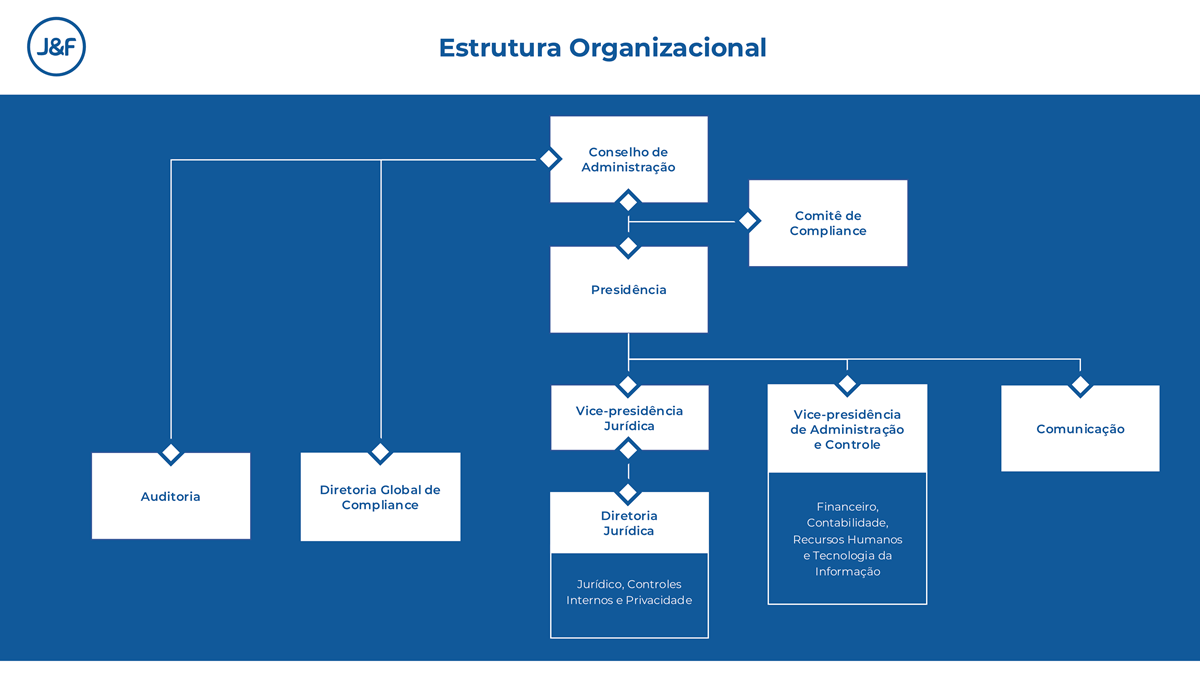About Us
With over 70 years of history, the group has a consistent track record of growth and value creation.
The group controls JBS, the largest producer of protein-based foods in the world; Eldorado Brasil, one of the most modern and sustainable pulp manufacturers in the world; Âmbar Energia, a company that operates across energy generation and distribution, energy solutions development, energy trading, and natural gas transportation; Flora Higiene e Cosméticos, leader in several segments of cosmetics and cleaning products; Canal Rural, the main communication platform specializing in agribusiness in Brazil; LHG Mining, with vast reserves of high-quality iron ore and manganese; Banco Original, with exclusive operations in the corporate, agribusiness and middle market segments; PicPay, a financial ecosystem with more than 60 million customers; Fluxus, which operates in the exploration, processing, and transportation of natural gas in Latin America and MGÁS, a natural gas trader.
In addition, it maintains the J&F Institute, a Business Education Center that exists to transform companies into educational institutions, which offers elementary school 2, technical high school and higher education to train more than 600 young people.
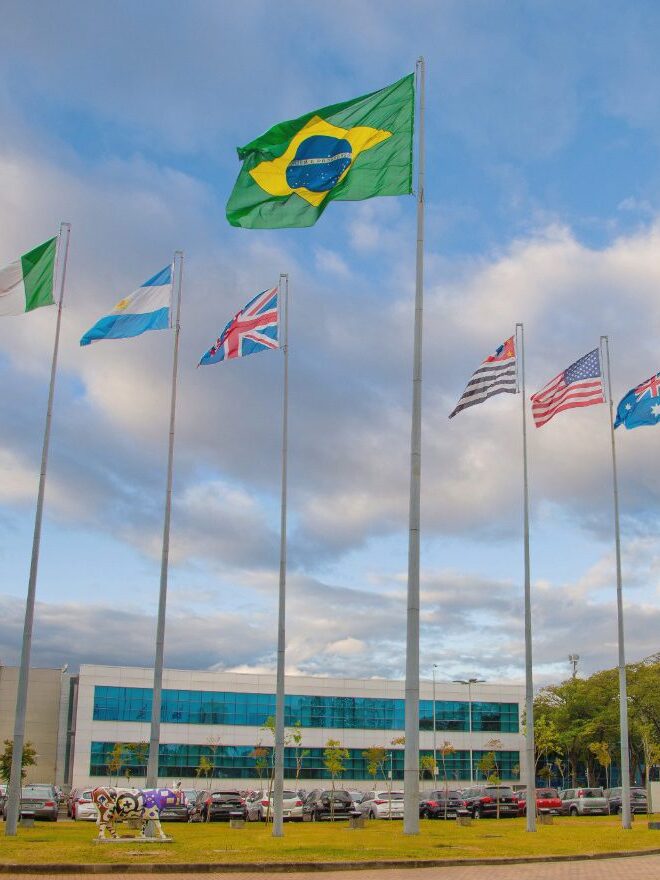
Mission and Values
Mission
To be the best in what we set out to do, with absolute focus on our activities, ensuring that we offer the best products and services to our customers, consistency to our suppliers, profitability to our shareholders and the opportunity to access a better future for all our employees.
Our Values
Owner’s Attitude
Committed to the result, he knows in depth what he does and has a vision of the whole. Acts with obstinacy, discipline and focus on detail. It is hands-on, always seeks to be the best at what he does and never gives up.
Always available and sets an example. It is indignant, does not conform, does not keep quiet or omit himself when he sees something that does not work well or can be improved. It is attentive to spending and saving every penny. Is engaged with the culture of the organization.
Frankness
They are direct, sincere, truthful and transparent in their relationships, always with respect, in a positive, aggregating and welcoming way. He does not omit himself, he expresses his opinions even when contrary to others. He knows how to say no.
Availability
He is responsive, accessible, available, has no day and no time, is always ready and has work as a priority. He is open to the new, to change and motivated for new challenges.
Determination
He is strong-willed, delivers superior results, and fulfills his commitments. It makes things happen, looks for alternatives to problems and engages people towards a common goal. He has a sense of urgency, an attitude of ownership and never gives up.
Simplicity
It makes things happen in a simple and practical way, it is hands-on, it goes straight to the point, it simplifies and reduces bureaucracy while respecting the rules.
Humility
He knows how to listen, he is attentive, he considers the opinion of others, it doesn’t matter who did it, it matters what we did. He’s not ashamed to ask or say he doesn’t know. He is not arrogant or conceited and acts respectfully. He doesn’t care about status or think he owns the truth. It prioritizes the we and not the self.
Discipline
He fulfills the agreement, he is punctual with his schedule and his commitments. Performs his tasks in a disciplined manner. It is focused, pragmatic, optimizes time, activities and resources. It delivers results, it doesn’t create justifications and excuses.
Our Beliefs












Global Operations
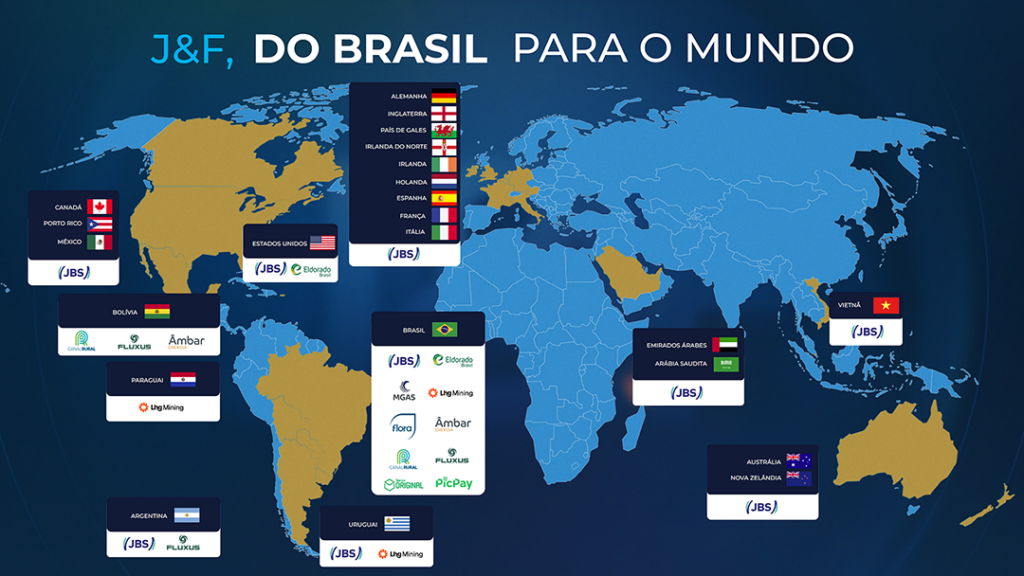
Founder
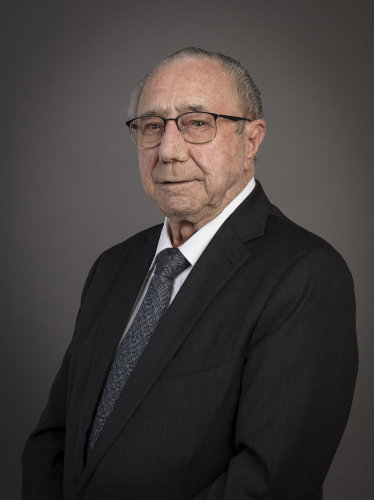
JOSÉ BATISTA SOBRINHO (Zé Mineiro)
José Batista Sobrinho, known as Zé Mineiro, is the founder of the J&F group, the largest business conglomerate in Brazil. With more than 70 years of history, the group now has 306 thousand employees spread across 400 operations, in more than 20 countries, with net revenues of R$ 434 billion in 2024. Its initials give its name to the group’s largest company, JBS, a global leader in the production of protein-based foods.
The businessman began his career in 1953, when he opened the Casa de Carnes Mineira, in Anápolis (GO), alongside his brother Juvensor Batista. This was the starting point for what would become JBS. In the 1970s, the company gained strength with the Friboi brand, which expanded its operations in Brasília and expanded into new markets.
Zé Mineiro also diversified the business with the acquisition of the company Cical, which was transformed into Flora in honor of his wife. This company gave rise to J&F’s Hygiene and Cleaning division, which bears the couple’s initials.
Under the leadership of his sons — José Batista Júnior, Wesley Batista and Joesley Batista — JBS has undergone a process of strong expansion and internationalization, consolidating itself as a world reference in the food sector.
Currently, JBS is present in more than 180 countries, with more than 250 business units, and is part of J&F’s diversified portfolio, which also operates in sectors such as pulp (Eldorado Brasil Celulose), mining (Lhg Mining), cosmetics and hygiene (Flora), energy (Ambar), finance (PicPay and Banco Original), oil and gas (Fluxus and MGAS) and communication (Canal Rural). The J&F Institute, which is also part of the group, is a business education center created to transform companies into educating companies.
Throughout his career, Zé Mineiro consolidated values that became the basis of the group’s business culture, such as simplicity, frankness, humility, determination, discipline, availability and ownership. These values are all about simplicity, being straightforward, humble, determined, having discipline, being available and embracing the owner’s attitude. A strong organizational culture portrays the company’s personality and identity, develops a sense of belonging and employee engagement, which attracts market attention and grants credibility to the company.
Shareholders
WESLEY MENDONÇA BATISTA

Shareholder and Vice Chairman of the Board of Directors of J&F S.A. and member of the Board of Directors of JBS N.V. (NYSE: JBSAY), Pilgrim’s Pride Corporation (Nasdaq: PPC), and JBS S.A.
Wesley Batista is a Shareholder and Vice Chairman of the Board of Directors of J&F S.A., Brazil’s largest business group. J&F has 306,000 employees across 400 operations in over 20 countries and net revenue of R$434 billion in 2024. He is also a member of the Board of Directors of JBS N.V. (NYSE: JBSAY) along with Pilgrim’s Pride Corporation (Nasdaq: PPC) and JBS S.A.
He began his career at the age of 17 at JBS. Founded by his father in 1953, JBS has since become a global leader in the animal protein industry, with J&F as holding company.
As a shareholder, Wesley Batista oversees J&F’s activities, which span food (JBS), cellulose (Eldorado Brasil Celulose), mining (Lhg Mining), cosmetics, personal care and cleaning products (Flora), energy (Âmbar), financial services (PicPay and Banco Original), oil and gas (Fluxus), and communications (Canal Rural). He also serves as Vice President of the Instituto J&F, an organization dedicated to encouraging companies to take on an educational role.
Wesley Batista served as Global CEO of JBS for six years (2011 to 2017). In this position, he led the company’s expansion in the global food market by expanding higher-value product lines and strengthening JBS brands. In the domestic market, the company strengthened its beef operations and entered the chicken segment. He led acquisitions including XL Foods in Canada, Seara in Brazil, Cargill Pork in the United States, Primo in Australia, and Moy Park in the United Kingdom.
Prior to that, he served as President of JBS USA for four years overseeing growth in the United States following the acquisition of Swift & Company in 2007. Under his leadership, JBS USA more than doubled revenues, acquiring Smithfield’s beef business, JBS Five Rivers, a majority stake in Pilgrim’s Pride, and expanding the Australian operations acquired through Swift.
Earlier, he was President of JBS’s beef operations in Brazil and Argentina for 15 years, building the foundation for the company’s future global leadership.
JOESLEY BATISTA
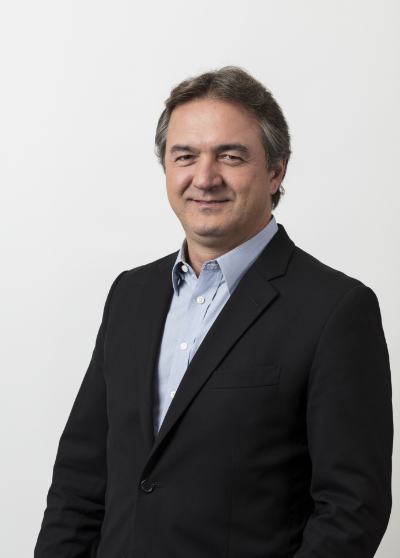
Shareholder and Chairman of the Board of Directors of J&F S.A. and member of the Board of Directors of JBS N.V. (NYSE: JBSAY), Pilgrim’s Pride Corporation (Nasdaq: PPC) and JBS S.A.
Joesley Batista is a Brazilian entrepreneur and Shareholder of J&F S.A., Brazil’s largest business group. J&F has more than 306,000 employees across 400 operations in more than 20 countries and net revenue of R$434 billion in 2024. He is also a member of the Board of Directors of JBS N.V. (NYSE: JBSAY) and its subsidiaries Pilgrim’s Pride Corporation (Nasdaq: PPC) and JBS S.A.
As a shareholder, he oversees J&F’s activities that span several areas, including food (JBS), cellulose (Eldorado Brasil), mining (Lhg Mining), cosmetics, personal care and cleaning products (Flora), energy (Âmbar), financial services (PicPay and Banco Original), oil and gas (Fluxus), and communications (Canal Rural).
The family business was founded more than 70 years ago with JBS, which has since become a global leader in the animal protein industry. J&F is the holding company of JBS. Joesley Batista began his career as a manager at Flora Cosmetics, Personal Care and Cleaning Products, at the age of 16, and soon after assumed the leadership of Friboi’s meatpacking plants in Goiás.
In 1993, he became head of Friboi’s finance department, later expanding his responsibilities to tax, accounting, and controlling. He played a leading role in the accelerated growth of Friboi and, later, JBS and J&F. This expansion was based on several strategic acquisitions, such as Swift in the United States in 2007, a milestone in the group’s internationalization.
At the end of 2005, Joesley assumed the presidency of JBS. In 2007, JBS achieved a major milestone: its IPO. It was the first IPO of a meatpacking company in the Brazilian stock exchange (BM&FBovespa) and the largest of a Brazilian company to date.
Currently, the entrepreneur also devotes his time to the J&F Institute, where he serves as a president. Founded 16 years ago, the Institute is a Business Education Center dedicated to transforming companies into educational enterprises.






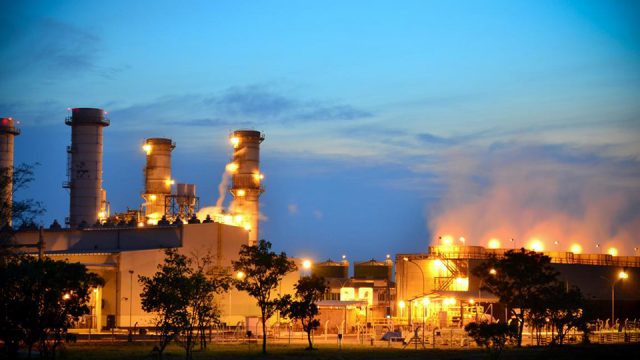
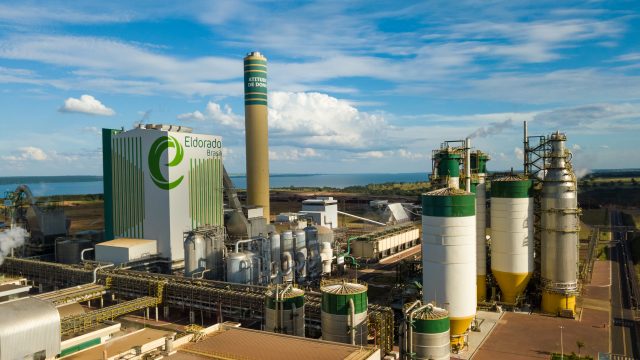
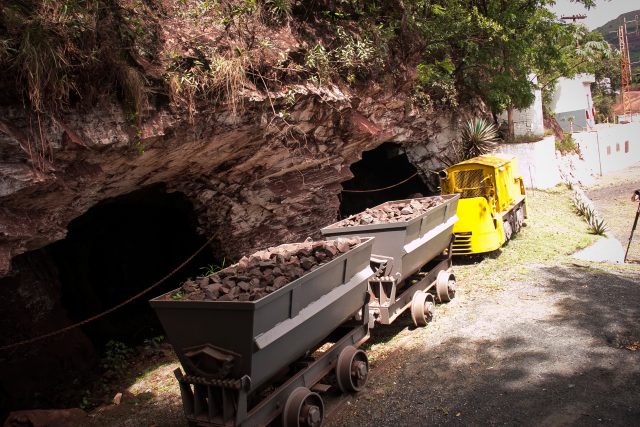
Historic
1953 | The Origin
Originating in a small butcher shop in Anápolis (GO), in 1953, the J&F group has become the largest employer in the country in these 70 years. The patriarch of the group, José Batista Sobrinho, traveled farms with his brother buying and reselling cattle.
In a short time, Casa de Carnes Mineiras – and its owner, now known as Zé Mineiro – became famous for the quality of its products and became the main supplier of the city’s butcher shops.
60s-70s | Expansion and diversification
In the 1960s, slaughterhouses were established in Anápolis (GO) and Formosa (GO). In the following decade, the company diversified, leading the meat market in Brasilia. In 1980, a small rendering factory gave rise to Flora Higiene e Cosméticos, which grew rapidly until it tripled in size between 1978 and 1983.
80s-90s | The Second Generation
In the 1980s, the younger children joined the family business. In 1988, Zé Mineiro bought a slaughterhouse in Luziânia (GO), appointing Wesley, 18 years old, to manage the unit, while Joesley, only 16, took over as Minuano’s industrial manager. Junior was in charge of the soap business. The group continued its expansion, leasing a slaughterhouse in Anápolis (GO) in the early 1990s, a unit formerly owned by Bordon, which would be acquired by JBS in 2003.


2000s | Internationalization
With the incorporation of Bordon’s brands and assets, Friboi became the leader in the beef protein sector in Brazil. In 2005, internationalization began with the acquisition of Swift Armour in Argentina, followed by the purchase of six slaughterhouses in the neighboring country in the following two years.
In 2006, Friboi entered the international financial market with bond issuances, followed by the IPO in 2007, the largest ever recorded in Brazil at the time, adopting the name JBS.
In July 2007, JBS bought Swift Co., which had revenues five times as much, achieving profitability under Wesley’s leadership in less than a year. Protein diversification expanded with the acquisition of Pilgrim’s Pride in 2009, and on the same day, the incorporation of Bertin S.A., consolidating JBS as the largest producer of animal protein globally.
2010s | Accelerated diversification
The expansion continued in other sectors, such as Banco Matone, in 2011, which gave rise to Banco Original. The following year, Eldorado Brasil Celulose was inaugurated, an operation created from scratch by the J&F group.
In 2013, JBS began to grow its poultry and pork production in Brazil with the acquisition of Seara.
Canal Rural was acquired in 2013 and Âmbar Energia, created in 2015, expanded its assets and currently has over 50 business units in its portfolio. Flora doubled in size with the acquisition of brands such as Ox, Neutrox, Karina, Kolene and Francis.

2020s | Looking to the future
In recent years, the group has continued to invest in the diversification of its operations, with special attention to technology and added value in all businesses.
Picpay, a startup acquired by the group, received investments that led it to become the largest payment app in the country and, later, a complete financial ecosystem. Today, the company has more than 60 million customers.
In 2021, JBS acquired Europe’s third-largest plant-based protein company, Vivera, and entered aquaculture through the acquisition of Australia’s Huon.
In the same year, LHG Mining was created, from the acquisition of Vale’s high-grade iron ore and manganese assets, in Mato Grosso do Sul.
The most recent moves were the acquisition of the Spanish Biotech and the creation of a research center in Santa Catarina, in 2022, both focused on the development of cultivated meat, and the entry of the J&F group into the oil and gas sector with the acquisition of Fluxus, in 2023, and MGAS, in 2024.
Looking to the future, the group invests in the J&F Institute, a business education center that works to transform businesses into educational enterprises.
